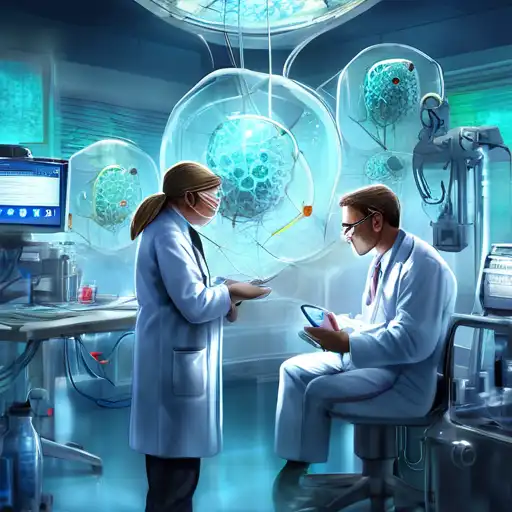Introduction to Biotechnology's Life-Saving Role
Biotechnology has emerged as a cornerstone of modern medicine, offering groundbreaking solutions to some of the most pressing health challenges. From gene editing to personalized medicine, the field is revolutionizing how we approach disease prevention, diagnosis, and treatment. This article explores the latest biotechnology breakthroughs that are making a tangible difference in saving lives around the globe.
Gene Editing: A New Frontier in Medicine
One of the most talked-about advancements in biotechnology is CRISPR-Cas9, a gene-editing technology that allows scientists to alter DNA sequences with unprecedented precision. This innovation holds the potential to cure genetic disorders, such as sickle cell anemia and cystic fibrosis, by correcting the mutations at their source. The implications of gene editing extend beyond hereditary diseases, offering hope for combating cancer and infectious diseases.
Personalized Medicine: Tailoring Treatment to the Individual
Personalized medicine represents a shift from the one-size-fits-all approach to healthcare. By analyzing a patient's genetic makeup, biotechnologists can develop customized treatment plans that are more effective and have fewer side effects. This approach is particularly transformative in oncology, where targeted therapies are improving outcomes for patients with specific genetic markers.
Biopharmaceuticals: The Next Generation of Drugs
Biopharmaceuticals, derived from living organisms, are at the forefront of treating complex diseases. Monoclonal antibodies, for example, have been instrumental in treating autoimmune diseases and certain types of cancer. These drugs are designed to target specific pathways in the body, offering a level of precision that traditional pharmaceuticals cannot match.
Stem Cell Therapy: Regenerating Damaged Tissues
Stem cell therapy is another area where biotechnology is making strides. By harnessing the body's ability to heal itself, researchers are developing treatments for conditions such as spinal cord injuries, heart disease, and diabetes. Stem cells have the unique potential to develop into any cell type, offering a pathway to regenerate damaged tissues and organs.
Artificial Organs and 3D Bioprinting
The shortage of donor organs is a critical issue in healthcare, but biotechnology is providing innovative solutions. 3D bioprinting and the development of artificial organs are paving the way for transplants that are more accessible and less likely to be rejected by the body. These technologies are still in their infancy, but they represent a promising avenue for addressing organ failure.
Conclusion: The Future of Biotechnology in Healthcare
The advancements in biotechnology are not just scientific curiosities; they are real, life-saving technologies that are changing the face of medicine. As research continues to push the boundaries of what's possible, we can expect even more revolutionary treatments to emerge. The future of healthcare is bright, thanks to the relentless innovation in biotechnology.
For more insights into how technology is transforming healthcare, explore our articles on medical innovations and the future of medicine.
